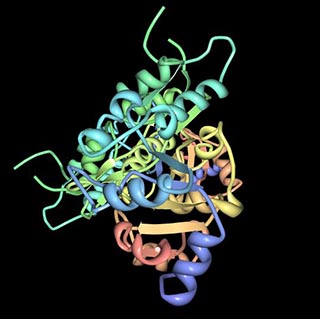Course Description
This course examines the chemical and physical properties of the cell and its building blocks, with special emphasis on the structures of proteins and principles of catalysis, as well as the chemistry of organic / inorganic cofactors required for chemical transformations within the cell. Topics encompass the basic …
This course examines the chemical and physical properties of the cell and its building blocks, with special emphasis on the structures of proteins and principles of catalysis, as well as the chemistry of organic / inorganic cofactors required for chemical transformations within the cell. Topics encompass the basic principles of metabolism and regulation in pathways, including glycolysis, gluconeogenesis, fatty acid synthesis / degradation, pentose phosphate pathway, Krebs cycle and oxidative phosphorylation.
Course Format
This OCW Scholar course, designed for independent study, is closely modeled on the course taught on the MIT campus. The on-campus course has two types of class sessions: Lectures and recitations. The lectures meet three times each week and recitations meet once a week. In recitations, an instructor or Teaching Assistant elaborates on concepts presented in lecture, working through new examples with student participation, and answers questions.
MIT students who take the corresponding residential class typically report an average of 10–15 hours spent each week, including lectures, recitations, readings, homework, and exams. All students are encouraged to supplement the textbooks and readings with their own research.
The Scholar course has three major learning units, called Modules. Each module has been divided into a sequence of lecture sessions that include:
- Textbook Readings
- Lecture Notes or Storyboards
- A video by Professor JoAnne Stubbe or Professor John Essigmann
- Problem Sets and solutions
To help guide your learning, each of these problem sets are accompanied by Problem Solving Videos where Dr. Bogdan Fedeles solves one of the problems from the set.
Course Info
Departments
Topics
Learning Resource Types












